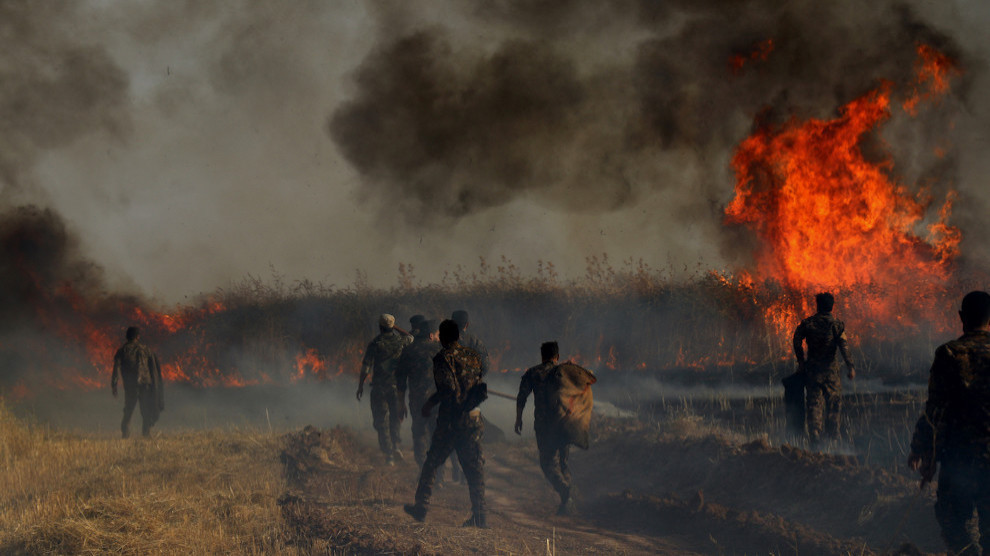North Syrian economy in the sights of the Turkish state
Agriculture is one of the most important bases for survival in northern and eastern Syria. In many areas agriculture has come to a complete standstill due to the attacks of the Turkish state.
Agriculture is one of the most important bases for survival in northern and eastern Syria. In many areas agriculture has come to a complete standstill due to the attacks of the Turkish state.

A large part of the population of North and East Syria lives from agriculture. Despite diversification efforts of the Autonomous Administration, grain production is the most important source of income in the region. The Turkish state is particularly targeting this source of income. For example, the grain silos in Serêkaniyê (Ras Al-Ain) and Girê Spî (Tal Abyad) are systematically plundered and the grain is transported to Turkey.

Fields set on fire
The past year was marked by field fires that were mainly set by Turkish-backed militias in fields ripe for harvest. According to the Committee for Agriculture and Economy, more than 100,000 hectares of agricultural land were destroyed. The damage is estimated at about 40 million euros. Dêrik, located on the border to North Kurdistan, is known for its particularly fertile soil. Nevertheless, the farmers in Ain Dîwar area have not been able to cultivate their fields for five years due to the attacks.

No agriculture can be done at the border
When farmers try to go to their fields, they are shot at by Turkish-backed militias or the Turkish army. Again and again people are injured or killed in such attacks. Therefore, almost 2,000 hectares of agricultural land lie fallow near Ain Dîwar alone.
Vegetable production despite attacks
The farmers in Ain Dîwar have now started to prepare the sowing of vegetables in the village and its surroundings. The inhabitants of the villages on the banks of the Tigris; Çemşeref, Şekirxac, Beravê and Mezrê mainly grow cucumbers, tomatoes, eggplants, peppers and honeydew melons.

1,297,500 hectares under occupation
The Agriculture Committee reports that in Girê Spî and Serêkaniyê 1,297,500 hectares of agricultural land are under control of the invading forces. Even around Qamishlo, 50,000 hectares cannot be worked.
Rivers are drained
Another method by which the Turkish state seeks to damage the North Syrian economy is to reduce the flow of the Euphrates and Tigris rivers with the help of GAP dams. The rivers are the source of the region's fertility and also serve to irrigate the fields. In addition to reducing the flow rate, dirty water is systematically discharged into the rivers. This also leads to the destruction of crops.
